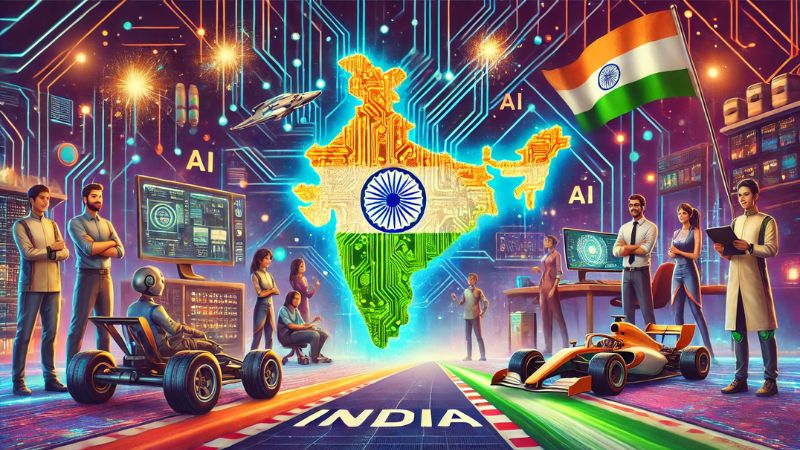For how many times have we heard that Artificial Intelligence (AI) is the future. The scope of AI would transcend sectors and boundaries, and the current modules have proved it to be true. Open AI’s ChatGPT made the far future look near. But it also started a race, a race against time, a race to dominate technology, a race that is making AI the next crucial focal point for global politics.
More recently, China disrupted the market with its newest unprecedented AI tool Deepsake. This race of technological advancement has become extra charged now as the elephant in the room is out now. Apart from the front-runner in AI, the aspiring countries like India have also turned their attention to the global marathon.
The concerns mounted even more as Open AI’s Sam Altman’s 2023 statement where he categorically dismissed India’s ability to develop large scale AI modules went viral again. He had called it ‘totally hopeless’.
Although, Altman, in his recent visit, clarified that his statement was taken out of context, this doesn’t mean that making competitive AI would be a cakewalk.
Altman’s clarification revolves around the reduction in the costs by every year. He explained it with the Moore’s Law in semiconductor industry which states that every 18 months, the number of transistors in a chip doubles. Basically, this is the rule of technology, the more it advances the more reduction in space and capital.
But the real hurdle for India is not money, it is about the environment and skill set. At policy making level, the government is trying to bring some significant changes, the money is being infused for this.
Jio-backed Chatsutra, Indian government’s Bhashini, Krutim, Corover.ai etc have already entered the market but none has been at par with the dominating modules. Still, Centre is optimistic that India could expect 6 major developers to launch Home-grown AI models by the end of this year.
This optimism is basically coming from the faith in the potential of Indian minds. As said earlier, the skill set is the main hurdle and it is where India needs to focus currently.
Also Read: India-France led AI Summit gains greater significance amid US China rivalry in AI Chatbot
Fortunately, the government is taking steps in that direction. With collaborations, training and providing a learning environment and opportunities, the young minds are being groomed.
One significant step in that direction came recently when the American technology company Oracle announced a programme to train up to 5,00,000 young people in India in artificial intelligence (AI), cybersecurity, Cloud computing and other fields by 2028.
The programme, delivered by company’s training and enablement service provider Project Vidya, will teach AI, machine learning, data science and application development.
Oracle University is also collaborating with National Skill Development Corporation (NSDC) to groom young minds. So far, the versity has trained 80,000 youths under Project Vidya by Tamil Nadu Skill Development Corporation under the state’s Naan Mudhalvan programme.
However, it is crucial to understand that if India wants to make strides in the AI sector, the extensive emphasis on development of the skill set with proper training and interactive orientations are unavoidable.
It must be remembered that it is the ecosystem that drives change. It is the need of the hour that New Delhi starts building ecosystems where the bright minds can put their brains to create something that is extraordinary.
For India, the race is not just to beat the front runner in AI but to conceive a position where it can produce new technologies of the future because it is not the AI which is the last post to pass, rather it is most likely the first.
